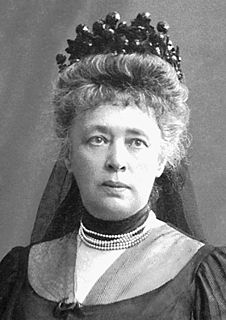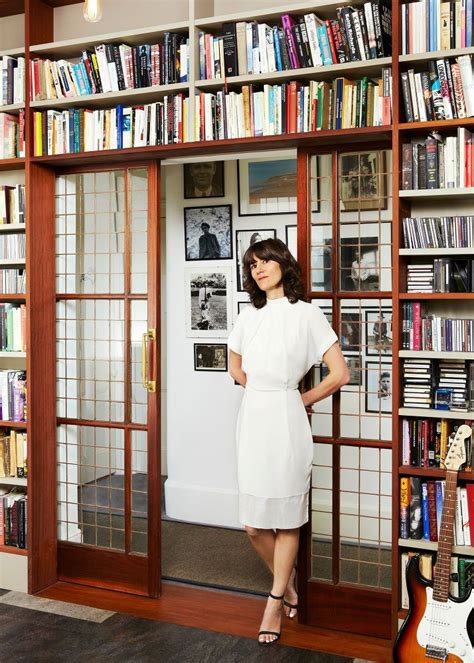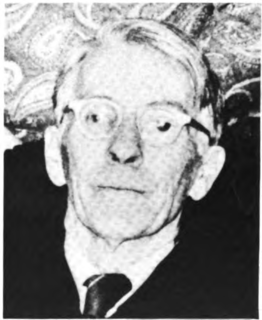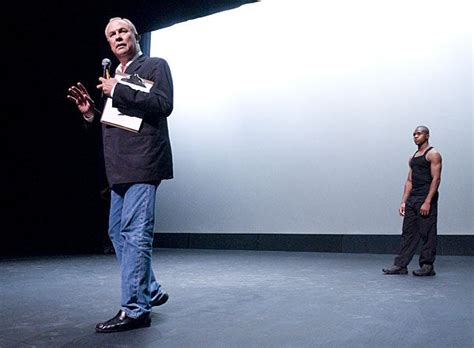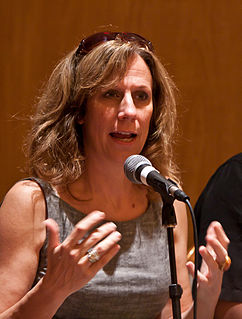A Quote by Jenni Olson
I have always been interested in crafting films that use long, static urban landscape shots as a way of manipulating the emotions of the viewer and forcing them to slow down, which I think simultaneously makes them more vulnerable as spectators, and also puts them in a position of being more than just spectators.
Related Quotes
Could we bring ourselves to feel what the first spectators of an Egyptian statue, or a Romanesque crucifixion, felt, we would make haste to remove them from the Louvre. True, we are trying more and more to gauge the feelings of those first spectators, but without forgetting our own, and we can be contented all the more easily with the mere knowledge of the former, without experiencing them, because all we wish to do is put this knowledge to the work of art.
We talked about and that has always been a puzzle to me
why American men think that success is everything
when they know that eighty percent of them are not
going to succeed more than to just keep going and why
if they are not why do they not keep on being
interested in the things that interested them when
they were college men and why American men different
from English men do not get more interesting as they
get older.
Nothing is more debilitating than to care about something you can't do anything about. And you can't do anything about your adult children. You can want better for them, and maybe even begin to provide something for them, but in the long run, you cannot do anything about someone else's vibration other than hold them in the best light you can, mentally, and then project that to them. And sometimes, distance makes that much more possible than being up close to them.
Spectators around the world enjoyed watching Seve, but talking to a lot of the players, he made such an impression on them the way he played, and the way he was such a beautiful, natural talent. His hands on the club. His address position. He had an unbelievable way of telegraphing through his countenance what he was going to do with the ball. It was just like an artist.
I've always been interested in justice. I think what is happening to the Palestinians represents the ultimate injustice. I also hate bullies and the effect of them, the way people side with them out of fear. The Israelis are the schoolyard bullies, with England and the United States siding with them.
That's just how I see things on a base level: there's so much going on. Or at least I like to have that feeling. It's part of being interested in notions of reality apart from storytelling. I don't know if it has something to do with having an art school education, which makes you aware of the way visuals speak, or makes you trust them more.
The "essence" of comics is fundamentally the weird process of reading pictures, not just looking at them. I see the black outlines of cartoons as visual approximations of the way we remember general ideas, and I try to use naturalistic color underneath them to simultaneously suggest a perceptual experience, which I think is more or less the way we actually experience the world as adults; we don't really "see" anymore after a certain age, we spend our time naming and categorizing and identifying and figuring how everything all fits together.
I just think that also controlling women is a way to control the whole narrative. And so I think when you've oppressed a people for a really long time, you're terrified to give them any power because they may have some reflection of how horrible you've been and you're terrified of being treated that way. All that we want is to be our best selves, but that's hard for them to understand.
Independently of the curious circumstance that such tales should be found existing in very different countries and languages, which augurs a greater poverty of human invention than we would have expected, there is also a sort of wild fairy interest in them, which makes me think them fully better adapted to awaken the imagination and soften the heart of childhood than the good-boy stories which have been in later years composed for them.




